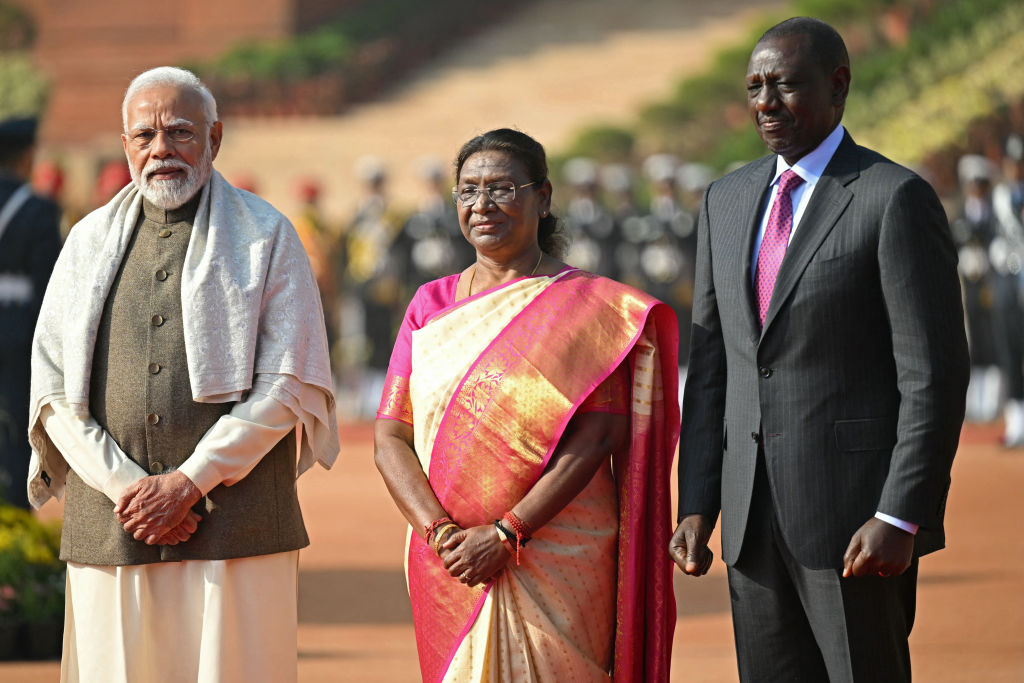ADF STAFF
Mairame Ba joined a unique group of women in 2022 when she graduated from a six-month training course to become one of Senegal’s first “Solar Mamas.”
The course, run by India’s Barefoot College International, aims to train women in villages across Africa to become experts in building and maintaining solar power systems for their communities.
“I never imagined that I could become a solar energy professional at my age — and without ever having been to school,” Ba, then 59, told The Wall Street Journal after graduating in 2022.
The Solar Mamas program is an example of India’s long-running relationship with African countries aimed at helping both India and its African partners develop, in the words of Indian officials, “together as equals.” The Indian government has extended Solar Mamas to 36 African countries and 733 million people who live without reliable electricity.
India is Africa’s third-largest trading partner and its trade with African nations has grown 18% per year over the last 20 years. It hit $103 billion in 2023.
India and China have taken dramatically different approaches to Africa. Through its Belt-and-Road Initiative, China has spent more than a decade loaning billions of dollars to African countries — debt some are now struggling to repay. India, on the other hand, has channeled $70 billion in investments through the African Development Bank (AfDB) to finance public projects across the continent.
In September 2023, a group of Indian companies pledged to invest $14 billion in Nigeria across a range of sectors from steelmaking to renewable energy. The Confederation of Indian Industry wants to increase India’s economic footprint in Africa to $150 billion by 2030.
India’s Export-Import Bank earmarks half of its international funding, technical aid and trade for Africa. The Pan African e-Network, Africa’s largest digital project, connects African countries to India as well as to one another to share knowledge in health care, resource identification, telecommunications, and more.
India and African troops also participate in joint military exercises, such as AFINDEX 2023, which brought together 124 participants from 25 African countries to develop relationships with Indian forces.
“India and African countries have travelled a long way from the days of common struggle against colonialism to an evolving and multifaceted 21st century partnership within the ambit of South-South cooperation framework,” Indian legislator Abhishek Mishra told the Manohar Parrikar Institute for Defence Studies and Analyses.
India’s 10-point Kampala Principles, which Indian Prime Minister Narendra Modi spelled out in 2018 before the Uganda parliament, calls for making Africa a top priority for Indian economic and diplomatic investments.
“India’s unique story in Africa gives texture to its strategic engagement,” Kenyan-Indian entrepreneur and investor Aly-Khan Satchu told the Africa Center for Strategic Studies (ACSS).
Satchu is one of Africa’s 3 million citizens of Indian origin, many of them concentrated in East Africa, South Africa and Ghana. Many have roots in these countries going back centuries and consider themselves African but still have close family or commercial ties to India. The continent’s African-Indian citizens play essential roles in Africa’s education and health care systems, as well as in politics and the military.
“They have often been a key interlocutor for Indian firms to get business on the continent and drive Indian investments,” Barnaby Dye, a lecturer in development politics at the University of York, told the website FDI Intelligence, which covers foreign direct investment.
“Entrepreneurial individuals with contacts back in India have been able to bring across, and offer their services to, Indian companies wanting to expand on the continent,” Dye added.
Those connections have helped India build a relationship with African nations that is very different from the largely transactional relationship they have with India’s rival China.
“One thing we hear from African colleagues is that India does not act or speak like a donor,” Veda Vaidyanathan told ACSS. “It focuses on creating space to work together as equals, enabling the African side to exert agency and leadership, while India facilitates.”

